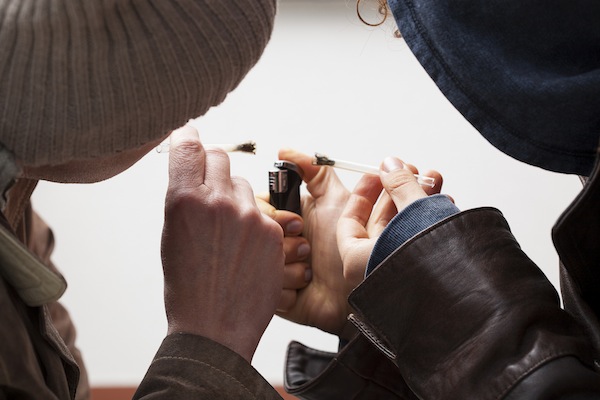
Colorado’s Misadventure on Marijuana
Just months after Colorado’s ill-advised legalization of marijuana, the results are in: its misadventure on marijuana is an unmitigated disaster.
It was dumb in the first place. Now it’s just dumber than before.
Much of the dysfunction has been reported in the popular press.
The New York Times (May 31, 2014) – “After 5 Months of Sales, Colorado Sees the Downside of a Legal High”
Los Angeles Times (May 27, 2014) – “Colorado’s neighbors dismayed by new wave of marijuana traffic”
The Denver Post (November 12, 2013) – “Pot problems in Colorado schools increase with legalization”
Yet, arguably the scariest headline belongs to the niche online publication, Food Safety News on April 17, 2014: “Murder, Illness Prompt Second Look at Recreational Marijuana Law in Colorado.”
Collectively, media reports cover a lot of ground, including these.
- A report from Colorado Children’s Hospital that it had treated seven juveniles for acute illnesses stemming from ingesting edible forms of marijuana since passage of the 2012 Amendment 64 by the Colorado Legislature making recreational sale of weed legal for anyone over the age of 21
- The murder of 44-year-old Kristine Kirk at the hands of her 47-year-old husband, Richard Kirk, who was allegedly hallucinating after smoking or ingesting marijuana
- Accounts from an undercover officer with a drug task force that he is seeing more and younger children bring marijuana to schools in sometimes surprising quantities
- Reports from a Grand Junction, Colorado, school resource officer that some high school students are smoking marijuana both before school and during lunch breaks
- A 2012-2013 report that marijuana use accounted for the largest percentage of 720 Colorado student public school expulsions
- A statement by Tom Gorman, director of the federally funded Rocky Mountain High Intensity Drug Trafficking Area program: “The marijuana laws were supposed to eliminate the black market. But in effect they have become the black market.”
- The February attempted robbery of an out-of-state marijuana buyer by a 17-year-old Aurora, Colorado, teen who instead accidentally shot and killed his girlfriend
Need I say more? Probably not, but what the heck
How about the April 16, 2014, Los Angeles Times story reporting on the unveiling of marijuana vending machines in Colorado? Or the two University of Washington students who are building an Uber for the delivery of marijuana from dispensary to the doorstep? Or the fact that Colorado’s governor signed a bill in early June 2014 to create what Time referred to as the world’s first state-level banking system to provide access to credit and basic banking services after being denied service from existing banks given that sales of the drug remain illegal under federal law? Or a March 29 Boston Globe story reporting the arrest of three New Milford (Conn.) High School students, ages 14, 15 and 16, for selling marijuana-laced brownies at school? Or a similar case in Central Texas in which a 19-year-old young man faces up to a life term in prison for selling baked treats laced with marijuana and hash oil?
As more states consider the legalization of marijuana, they could learn a lot from the Colorado experience. Let’s review.
- The National Institute on Drug Abuse (NIDA) reported a rise in the illicit use of marijuana among high school students: more than 12 percent of eighth graders and 36 percent of high school seniors, at both public and private schools, reported smoking marijuana in the past year.
- As predicted, legalization measures have “normalized” marijuana use and – along with sanctioned medical use – led to a perception on the part of young people that it’s safe and not really a big deal (approximately 60 percent of high school seniors participating in the NIDA study said that they did not believe that regular use of marijuana is harmful).
- A new study by scientists at Northwestern University linked marijuana with negative effects on brain function and performance, including differences in structures such as the thalamus, globus pallidus and striatum resulting in a decline in “working memory” vital to such tasks as solving puzzles, remembering numbers or quickly processing information needed to perform everyday tasks. Working memory is also a strong predictor of academic success, according to Matthew J. Smith, an author of the study.
- Research conducted by SADD and Liberty Mutual Insurance found that 23 percent of teens admit to driving under the influence of alcohol, marijuana or other drugs. A whopping one in four teens (25 percent) who have driven under the influence of marijuana say they’re not distracted “at all” when mixing substance use with driving.
- The drug culture may lead to increases in drug-related crimes and serve as a gateway for abuse of other, potentially more potent, drugs.
Whatever the merits of “medical marijuana” or the logic of legalization among adults over the age of 21, there can be no denying the deleterious, detrimental effects of marijuana on children and teenagers. None other than the former director of the White House Office on Drug Control Policy (the “drug czar”) John Walters said of the drug, “It makes you stupid.”
Case closed.
Stephen Gray Wallace, an associate research professor and director of the Center for Adolescent Research and Education (CARE), has broad experience as a school psychologist and adolescent/family counselor. He is also a senior advisor to SADD, director of counseling and counselor training at Cape Cod Sea Camps, and a parenting expert and blogger at kidsinthehouse.com. For more information about Stephen’s work, please visit StephenGrayWallace.com. © Summit Communications Management Corporation 2014 All Rights Reserved


















































Comments
I think the results of this
I think the results of this are really interesting but wonder if things will ever go back to the way it was.
I don't smoke weed and wouldn
I don't smoke weed and wouldn't want my kids to smoke it. But I wonder if it is right for the government to control what people take into their body.
I think that legalizing drugs
I think that legalizing drugs makes our society more dangerous. Yes, people should be able to make their own choices but not at the expense of putting others in danger.
I think people are going to
I think people are going to do what they want and we shouldn't make things illegal and should just let people have the choice of how they ruin their bodies.